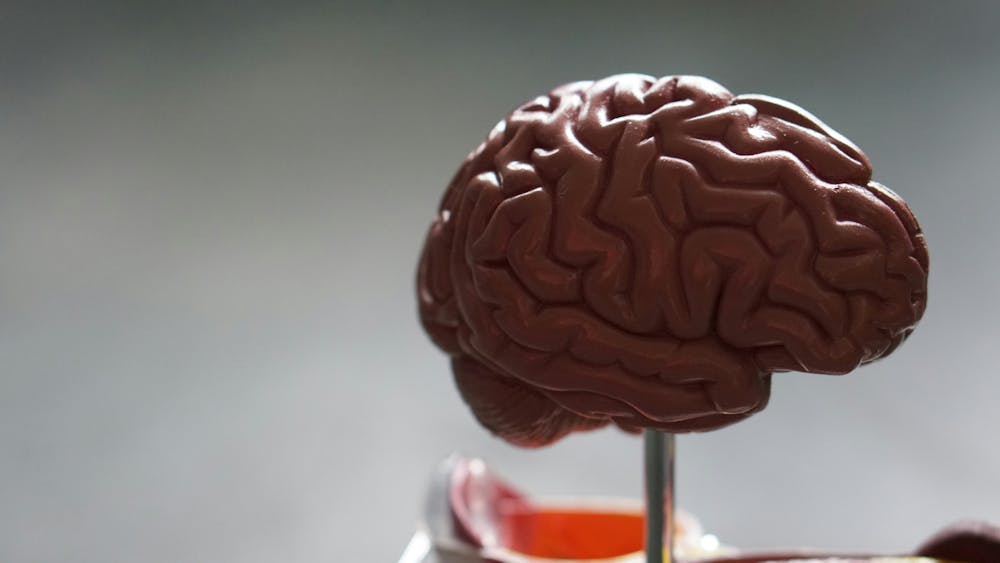Understanding brain function is crucial to the world of science, but we can’t always get the full picture from a healthy brain, according to Jeremy Hogeveen, a cognitive neuroscientist and UNM professor.
“If we’re doing our studies only on healthy subjects using brain scans, we tend to run into this causality problem where you can’t really infer that the brain is causing the behavior you’re seeing,” Hogeveen said.
Overcoming the causality problem — coupled with his experience studying brain injuries as a postdoc at the Rehabilitation Institute of Chicago — sparked Hogeveen’s interest in the relationship between brain injuries and psychiatric function, he said.
“Through interacting with patients who were being studied and their families, I started to become aware of the fact that even if you get some of the really big deficits recovered after a brain injury, sometimes there are these lingering, what we call ‘psychiatric challenges,’” Hogeveen said.
Psychiatric challenges can include anxiety and depression which can be induced after a brain injury, according to Hogeveen.
Hogeveen’s current research appears in a Stage 2 Registered Report — a publishing format that involves peer review before data collection, according to the Center for Open Science — in the journal “Brain Communications.”
The research looks at the effects of mild traumatic brain injuries, or mTBIs, on adolescents. MTBIs are less severe traumatic brain injuries that result in a loss of consciousness for zero to 30 minutes, according to a study published in the National Library of Medicine.
Hogeveen’s research on the relationship between mTBIs and depression in adolescents is unique in that it examines them before and after the injury, according to Hogeveen. Individuals with preexisting high levels of anxiety and depression might overreport their symptoms after they sustain a brain injury, he said.
“That’s always been something that’s hard to rule out in these studies,” Hogeveen said.
Hogeveen’s recent Registered Report uses data from the Adolescent Brain Cognitive Development study. That study analyzes child brain development and child health over time using MRI scans — a tool used to produce images of brains.
“What we realized this might help us look at is you can actually identify people that did not have a brain injury when they were first recruited, and then see if they got a brain injury in between study visits, (if it caused) a change from pre-test to post-test,” Hogeveen said.
To perform his research, Hogeveen designated a control group — a group of individuals participating in the study who did not sustain brain injuries such as mTBIs.
Get content from The Daily Lobo delivered to your inbox
“The other cool thing about it is because it’s such a huge study, we were able to identify a matched group of control subjects who had sort of the same racial, ethnic, socioeconomic, gender — all of these different demographic features that were matched at the baseline, and they were also critically matched for baseline cognitive ability and baseline depression,” Hogeveen said.
Previous research in this topic has suggested that there is a link between depression and mild TBIs, a correlation not found in Hogeveen’s research.
“We actually didn’t find any evidence for acquired depression in these folks,” Hogeveen said.
The results of previous studies might have been altered by sampling bias — an error in a study caused by its chosen participants being a misrepresentation of the group it intends to study — according to Hogeveen.
“There’s probably some sampling bias in the existing studies where it’s the subset of people that have the symptom that are coming in for the study. So it’s hard to get a base rate for what it’s like across the population,” Hogeveen said.
Another possible explanation for Hogeveen’s findings could be in the way that adolescent brains function. Specifically, adolescent brains might be less receptive to depression and anxiety after an injury than adults’ due to younger brains' ability to recover, according to Hogeveen.
Hogeveen said that we cannot yet conclude whether adolescent brains are more resilient to post-concussion symptoms like depression relative to adult brains, but he is hopeful that future research studies will test this.
Future research studies should recruit people that have not had a brain injury yet, then track changes in their levels of depression and cognitive functioning, Hogeveen said.
While Hogeveen’s research suggests the correlation between mTBIs and depression is weaker than previously thought, a brain injury can cause complications and impairment to brain function. MTBI symptoms may include nausea, loss of concentration, memory issues and other psychological effects, according to Mayo Clinic.
“There's a risk. We should be aware of it, but maybe this one risk is smaller than we thought,” Hogeveen said.
Arly Garcia is a freelance reporter for the Daily Lobo. She can be reached at news@dailylobo.com or on X @dailylobo






